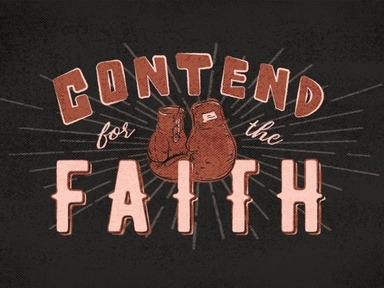But You, Beloved

Notes
Transcript
Sermon Tone Analysis
A
D
F
J
S
Emotion
A
C
T
Language
O
C
E
A
E
Social
Introduction
text
Transition
text
Illumination
Regarding Ourselves, 20-21
Regarding Ourselves, 20-21
20 But you, beloved, building yourselves up on your most holy faith, praying in the Holy Spirit, 21 keep yourselves in the love of God, looking for the mercy of our Lord Jesus Christ unto eternal life.
Be Responsible (building)
Growth and Maturity don’t just happen
We must intentionally build our Spiritual lives
actions
attitudes
habits
behaviors
while continually removing “debris”
Our Faith provides a solid foundation on which to build
Be Relational (praying)
communication with our Heavenly Father through prayer
consideration of our relationship through keeping ourselves in the love of God
We cannot earn or lose God’s love for us
We should keep God’s love for us in our minds
We should reflect God’s love for us in the way we live
We should reciprocate God’s love for us by loving Him in return
Be Receptive (looking)
God wants to show us mercy
with mercy comes grace
With mercy comes the promise of eternal life
We should live with the awareness and expectation that this life is not all there is
Regarding Others, 22-23
Regarding Others, 22-23
Jude doesn’t address our relationship to other people so much as he provides a couple of quick thoughts about how we relate to those who disagree with us.
22 And on some have compassion, making a distinction; 23 but others save with fear, pulling them out of the fire, hating even the garment defiled by the flesh.
compassionate but separate, they are brothers
It is natural to separate to others who agree with us and, thus, from others who do not. This is ok.
It is natural to be competitive with, and even hostile toward, those with whom we do not agree and do not associate. This is not ok.
separate but compassionate, they are lost
Continue making a distinction between ourselves and those with whom we don’t agree
Recognize that some people are different because they are not actually saved even though they may be religious
Unsaved religious people need to be reached just like all unsaved people
Unsaved religious people think they’re ok
they are harder to convince because they think they know
they are nearer to Hell than they know
Regarding Jesus, 24-25
Regarding Jesus, 24-25
24 Now to Him who is able to keep you from stumbling,
And to present you faultless
Before the presence of His glory with exceeding joy,
25 To God our Savior,
Who alone is wise,
Be glory and majesty,
Dominion and power,
Both now and forever.
Amen.
He holds us up when we fall down
He helps us live right when we want to live wrong
He hears us when we worship
Conclusion
Jude concludes his letter with some positive, powerful thoughts for those who are faithful.
Though Jude’s letter seems negative, and even harsh, there is a thread of positivity that runs through it. The “common faith” that he wanted to write about is still present. The reason he fights for it is because it is a positive that can be lost.
Rather than seeing him and his words as negatives, we should see him as intensely passionate FOR his faith.
Application
There are several points in his conclusion that we might apply. But perhaps the clearest call to action is simply a call to action. Jude exuded passion for his faith and that caused him to act. There is a natural correlation between our passion and our action.
More passion = more action
More action = more passion
Less passion = less action
Less action = less passion
No passion = no action
No action = no passion
We are sometimes unclear about how much passion we have for our faith. But we can see how much action we take based on our faith. We need to be honest about where that suggests we are. And if we don’t like what we see, spend the time to build up our most holy faith as Jude said.